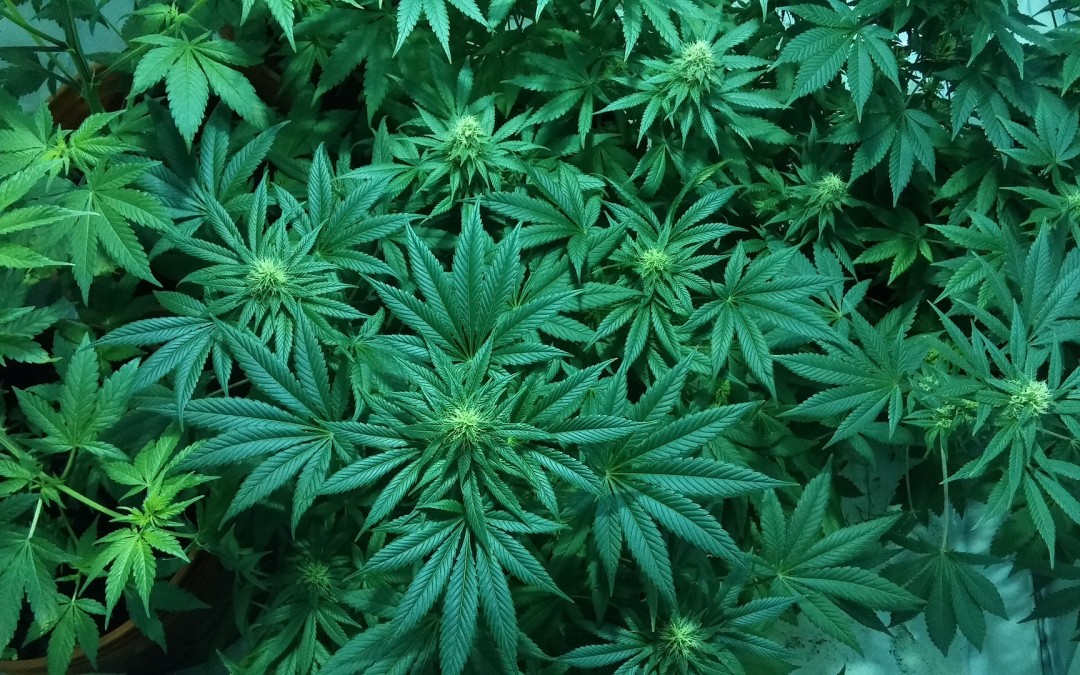Marijuana News

Facebook Shuts Down Medical Marijuana Pages
23 states have already legalized medical marijuana and many states are planning to legalize recreational use in 2016, but Facebook is still not friendly with the topic. Three dispensaries in New Jersey recently had their Facebook pages deleted and many others across the country have faced similar situations.
“It seems high-handed to simply shut down important resources for sick patients without even saying why or giving organizations a way to ask for reconsideration,” said Peter Rosenfeld, one of the registered patients in the NJ state program. “What better use of a social media than having sites where parents of sick children can ask questions about medication and treatments?”
In an email, the Facebook media relations declined to comment or answer. When the dispensaries tried to use their home page, they simply found an electronic message that said: “We remove any promotion or encouragement of drug use.”
According to Facebook’s advertising policies’ page. “The site does not allow ads that promote the sale or use of . . .illegal, prescription, or recreational drugs,” Social media and advertising restrictions are presenting huge challenges for cannabis businesses of all kinds.

Startups Rush To Innovate Legal Cannabis Industry
A recent report by ArcView Market Research found legal cannabis sales jumped 17% in 2015 and are predicting it to grow by an astounding 25% this year. That means the legal cannabis industry will reach $6.7 billion in total U.S. sales in 2016. Innovative startups are flooding the scene, hoping to find their niche in America’s fastest growing industry.
“We are going to see the legal cannabis industry create, tailor to and adapt technology for agriculture, plant compound extraction, security and finance,” said Leslie Bocskor, a funds manager who focuses on marijuana businesses. “As the industry grows, it will rely on technology to facilitate the development of businesses from an innovation perspective, which will create a more fertile environment for investment.”
There is a lot of opportunity for innovation within the cannabis industry. However, entrepreneurs are facing just as many challenges when trying to start up their businesses. Challenges such as the constantly changing regulations, limited access to capital and the banking restrictions (to name a few).

The 11 States Most likely To Legalize Marijuana Next
Marijuana legalization is spreading to more and more states in 2016. But which states are most likely to legalize next? There are many predictions for 2016. Currently only Alaska, Colorado, Oregon, Washington, and D.C. have legalized recreational use, but 11 states are showing signs of joining the green rush soon.
According to USA Today, there are 11 states that are most likely to legalize next. All of the states already have a high number of cannabis users and minimal penalties. See the list below:
- Massachusetts
- Nevada
- California
- New York
- Vermont
- Minnesota
- Connecticut
- Maryland
- Rhode Island
- Maine
- Delaware

Long-Term Marijuana Use May Be Correlated to Shortened Memory
A recent study suggests that daily marijuana use in teens may have a small effect on memory problems and structural abnormalities in the brain.
Researchers found that young adults who smoked cannabis heavily as teens often performed worse on memory tests than young adults who had never used the drug regularly. Brain scans also showed some differences in the brain, specifically in the hippocampus- a part of the brain heavily responsible for memory.
Although these studies do show these findings, the tests were only conducted once and researchers can not link a casual relationship between marijuana and shortened memory. In other words, this study strictly proves a small correlation rather than a causation.
“We can’t know that it’s causing the memory impairment,” said Smith, an assistant professor of psychiatry and behavioral sciences at Northwestern University Feinberg School of Medicine, in Chicago.
Researchers are continuing to dive into the study of marijuana, especially with legalization booming across the United States. More research will soon provide many answers for the open debate on the safety of marijuana use.

Research Group Predicts Marijuana Industry To Reach $6.7 Billion in 2016
As marijuana becomes legal in more and more states, the booming cannabis industry is starting to be taken seriously. Not only are scientists proving the plant’s medicinal benefits; businesses are proving the numbers as well.
A new report by ArcView Market Research found legal cannabis sales jumped 17% in 2015 and are predicting it to grow by an astounding 25% this year. That means the legal cannabis industry will reach $6.7 billion in total U.S. sales in 2016.
“I think that we are going to see in 2016 this next wave of investors, the next wave of business operators, and people who’ve sort of been watching or dipping their toe in, really starting to swing for the fences and take it really seriously,” ArcView CEO Troy Dayton said in an interview.

Dispensary Owners Need To Become Better Marketers
Marijuana dispensaries are starting to run into multiple challenges in Colorado and beyond. With more and more dispensaries opening up the competition is getting fierce. Whether you are providing the best customer service or have the best strains available, there is still a huge need for marketing to help get customers into the store and build a recognizable brand.
Good Chemistry is among the most advanced dispensary brand in Colorado. In late 2014 they looked to a tech and design consultancy, Duffy to rebrand marijuana and the way you buy it. The firm was one of the first to brand the effects of certain strains. Lightning bolts connote perception, creativity and pleasure for products in the “Amplify” category. “Relax” features strains that help users “unwind, connect and chill,” and is visualized using a Yin Yang symbol.
Other cannabis startups like Leafly, a company that helps consumers find the right strains and dispensaries in their area online, are thriving. Recently, Marijuana Business Daily reported online listing services are still the best way for dispensaries to get found by new users, medical marijuana patients, or seasoned consumers alike.

Nuns Protesting a City Ban on Cannabis
The Sisters of the Valley’s “abbey” in Merced, California are not your typical nuns. Sister Kate and Sister Darcy, don’t follow an organized religion, but see themselves as a “spiritual sisterhood devoted to medical marijuana”.
The women grow marijuana in their garage, produce cannabidiol (CBD) products in their kitchen and sell their solvents and tinctures online. (Unlike THC, CBD does not cause a high and is non-psychoactive, yet provides many medicinal benefits.)
Despite all of the recent studies proving the medicinal benefits of cannabis, the city of Merced is trying to shut down the sisters’s local healing business. In early January, legislators proposed a ban on the sale and cultivation of medical marijuana. The Sisters of the Valley, are fighting back and circulating a petition.
Whatever happens, though, the Sisters of the Valley are answering to a higher authority. “We’re not accepting their ban,” said Sister Kate. “It’s against the will of the people, and that makes it unnatural and immoral.
Image via Sisters of Valley Facebook page

Roadblocks for the Medical Marijuana Industry
Although the media and rapid growth may make the marijuana industry appear more glamorous at times, many of these marijuana businesses are facing issues just like everyone else.
Some dispensaries are running out of cannabis with the influx of demand, forcing customers to drive to the next closest shop which could be hours away. Others are battling mold and other fungus in their crop, similar to problems any plant grower might have.
Outside of a variety of internal issues with dispensaries, patients of the product are voicing their difficulties with the state’s online registration system.
Each state continues to change its laws around marijuana, but the issue between supply and demand of the plant can also be partially attributed to the lack of dispensaries in some states. While four dispensaries may be better than nothing to start, it has created an issue of availability for the patients that need to product fast.
Patient demand has continued to steadily grow in states that have legalized medical marijuana, but the businesses need to keep up with supply and business growth to match this demand. Operational changes and long-term strategic planning are in the plans to help the businesses that are finding it hard to keep up with the growing market.

Israel’s Plan To Be Leading Global Player in Medical Marijuana Market
In January, the Israeli government announced plans to strengthen it’s leadership position in the medical marijuana industry and open their local market to new farms and sellers. Israel has been a leading global player in clinical research and testing for the last decade. They have plans to strengthen their position as a player on the global medical marijuana market.
Currently in Israel, only eight farms are allowed to grow cannabis for medical purposes. The government is adding new regulations so that anyone who meets specific safety and quality requirements can be eligible to grow and sell cannabis.
Today, 25,000 patients in Israel receive cannabis for medical reasons. If patients are looking to get approved for medical marijuana, they must wait months to get a prescription because a lack of doctors. Israel is also taking steps now to increase the number of growers and physicians to solve this issue.
“Even today there are pharmacies giving out all kinds of other medicines such as morphine. We will also sort out cannabis. There will be registration and we will supervise it,” Yaakov Litzman, Israel’s minister of health said.

The New York Medical Marijuana Program Begins
On January 7th, New York City opened its doors to its first medical marijuana dispensary.
Nicholas Vita, CEO of Columbia Care, opened this dispensary in hopes to change the way marijuana is currently looked at in New York. “We are opening a new door of patient access, and hopefully we will be able to provide patients with an alternative or substitute form of treatment for some of the qualifying conditions that have been approved under the law.”
At Columbia Care, they will be providing the medicine in three different forms: a tincture that can be placed under the tongue, a concentrate that can be vaporized, and pills that will come in capsules. .
Vita, among others, hopes to provide enough data to the medical community to help turn the policy makers into believers in the efficacy of the product. Many also hope to see marijuana begin to be used as an alternative for the standard of care for some of the terrible illnesses out there.
Although this is a start for the state, there are still many loopholes around the law that many are not happy about. These include onerous restrictions on patients and requirements that doctors who want to pursue the industry take a special class, among others.
The amount of restrictions that this law has placed on medical marijuana has made it hard for businesses and consumers alike to get their hands on the product. The extensive process to get the drug prescribed is deterring people away, forcing them to look elsewhere, and possibly to other far more dangerous prescriptions, for their medical needs.



Recent Comments